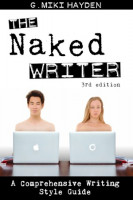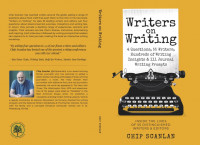
Getting Feedback on Writing: Tricks that Help to Succeed
ventsmagazine.com – Thursday December 23, 2021

You have some audience if you are a writer. It is evident that you will get some feedback to your ideas and style of writing. There are different contexts for that: readers’ reviews, editor’s notes, comments from the peer writers, and others. Are you ready to acknowledge that some feedback is going to be negative?
Essay writers are always vulnerable. They are exposed to criticism, judgmental comments, and subjective opinions. It may happen that people will give harsh comments without any explanations. Getting feedback on writing can hurt, and you have to realize this aspect from the very beginning. If you are not ready to deal with negative remarks, you will not feel confident as a writer. Nevertheless, it can be complicated to get the feedback, it is important for you as a writer.
You cannot get an objective picture of what you do without knowing the opinions of other people. Do you want to make your writing more advanced? Then you can focus your primary attention on the areas mentioned in the review.

The Naked Writer by G. Miki Hayden—in Action
By G. Miki Hayden
Instructor at Writer's Digest University online and private writing coach
firstwriter.com – Wednesday December 22, 2021

No matter how gifted a writer you are today, you can become a much better writer than you are now. I know you can because I, myself, have transformed into a greatly improved writer over the years. Recently, I’ve been re-editing a lot of my work from the 1990s, to the mid-2010s; and looking at even more contemporary work of mine to just this year, I see how I’ve grown.

How to Start Writing Fan Fiction
bookriot.com – Wednesday December 15, 2021

I began writing fan fiction in around 2008, when I was 11 years old. So, since I’m 24 now, that’s more than half of my life ago! It was then that I loved Twilight and a few other fantasy novels so much that I was desperate to find more stories in that universe and Google searched for that exact thing. And to my surprise, there were tons of them on a magical but now outdated site called “Fan Fiction Dot Net.”
Through middle and high school, I wrote fanfic for a ton of different fandoms but mainly The Avengers. Fan fiction not only helped me practice character development but also come to terms with my queer identity through pairings I enjoyed, especially since I grew up in a fairly conservative area where being queer wasn’t something I could share without losing friends.
These days, I’m a reader of fanfic more so than a writer of it — in part because I have other writing projects that take up more of my time, and a day job, and non-writing hobbies that help me avoid burnout but also take up time, et cetera, et cetera. But I still enjoy reading it for stress relief and a reminder that writing can be purely for joy and personal fulfillment if you want it to be.
Fan fiction became my gateway to writing original stories. I’m adamant that it can play a positive role in practicing things like character development or even just finding a love of writing. These six tips will help you get started writing fan fiction if you’re a beginner and get the most out of your project.

Can “Distraction-Free” Devices Change the Way We Write?
newyorker.com – Monday December 13, 2021

For a long time, I believed that my only hope of becoming a professional writer was to find the perfect tool. A few months into my career as a book critic, I’d already run up against the limits of my productivity, and, like many others before me, I pinned the blame on Microsoft Word. Each time I opened a draft, I seemed to lose my bearings, scrolling from top to bottom and alighting on far-flung sentences at random. I found and replaced, wrote and rewrote; the program made fiddling easy and finishing next to impossible.
I’d fallen into the trap that the philosopher Jacques Derrida identified in an interview from the mid-nineties. “With the computer, everything is rapid and so easy,” he complained. “An interminable revision, an infinite analysis is already on the horizon.” Derrida hadn’t even contended with the sirens of online life, which were driving writer friends to buy disconnected laptops or to quarantine their smartphones in storage bins with timed locks. Zadie Smith touted Freedom, a subscription service that cut off the user’s devices—a chastity belt for procrastinators.

From reporter to the corner office: a self-publisher’s maiden voyage
poynter.org – Monday December 13, 2021

Self-publishing, once derided as ‘vanity publishing’ reserved for losers who couldn’t find a traditional publisher, has gone mainstream.
Four simple questions recently changed my life, and I hope they’ll change yours, too.
As a journalist, freelance magazine writer and author, I’ve been working for publishers for 50 years. They were shadowy figures in suits, sometimes glimpsed in the elevator, but rarely stepping into the newsroom. Often, they were just a name on my paycheck.
Nevertheless, they controlled my life, and the lives of those in the newsroom, and not just through the wages they paid. While leaving editorial decisions to editors, (usually) they ruled over the business side: printing, marketing, promotion, distribution, and all the other work required for the daily miracle of newspapers, monthly deadlines for magazines, and those for books that may stretch for years.
This fall, dissatisfied with the marketing and promotion of my last three books, I decided that it was time for a change. I wanted to control my own publishing destiny.

Michael Pietsch Looks at Publishing’s (Near) Future
publishersweekly.com – Saturday December 11, 2021

The publishing industry had an unexpectedly good year in 2020, despite the many challenges created by the pandemic. In the essay below, Hachette Book Group CEO Michael Pietsch uses lessons from last year to make some educated guesses about where the industry may be heading in the near term.
The essay is part of a larger piece that appears in the Publishers Weekly Book Publishing Almanac 2022: A Master Class in the Art of Bringing Books to Readers. Published last month by Skyhorse Publishing and written in cooperation with PW, the almanac is designed to help authors, editors, agents, publicists, and anyone else working in book publishing understand the changing landscape of the business.

Insider tricks that will help you find a publisher for your book
irishtimes.com – Thursday December 9, 2021

Lockdown offered many frustrated writers a key to unbolt the constraints of daily routine and an opportunity to work on the novel or work of nonfiction that has been gathering dust in their minds or in a bottom drawer for years. If 2022 is the year to take your book to the next stage, we asked authors and publishing professionals for their advice on how to make that happen.

How a small publisher survived the digital age
spectatorworld.com – Monday December 6, 2021

In The Truth about Publishing, Sir Stanley Unwin writes: “It is easy to become a publisher, but difficult to remain one.” David R. Godine has accomplished the difficult task of remaining one for fifty years, and in the beautifully designed and set Godine at Fifty — would we expect any less from a Godine book? — he tells the story of the company’s beginning and survival and of each book he has published over the years, chock-full of reproductions of the company’s covers, woodcuts, and illustrations. This is a book about books for book lovers.
Raised in Boston, David R. Godine got his start in printing at Dartmouth, where he met the head of Dartmouth Publications, “a scholar of the history of graphic art, a fine teacher and a devoted mentor.” Godine worked with him for three years in his shop before spending a term at Oxford’s Bodleian, two weeks at France’s Bibliothèque nationale, and a week in Greece.

Level Up Your Reading: Become a Literary Magazine Volunteer Reader
bookriot.com – Thursday December 2, 2021

For avid readers, sometimes books can lose their appeal. You might get burned out or are unable to find the joy in keeping up with all the latest book releases. You could take a break in reading altogether, but there are other opportunities to level up your reading skills while putting your eye for detail to good use. One of those opportunities to become a literary magazine reader.
I had the great privilege of reading for two literary magazines in the past — The Missouri Review and The Masters Review — and both experiences proved invaluable to me as a reader and writer. It opened up my eyes to the blood, sweat, and tears that editors and readers put into these small but mighty publications. From a writer’s perspective, it also created an added respect for editors.

So you want to become a better writer? Be a better reader.
eu.usatoday.com – Tuesday November 30, 2021

People who write habitually – for work or for fun, journal entries or blog posts, book reports or short stories – often want to put their better foot forward, but the eccentricities and minutiae of the English language can be extraordinarily daunting.
As a professional word person, I know this as well as anyone: There’s always so freaking much to remember, from the basic differentiation between treacherous homophones (their, they’re, there), to the fine points of grammar (subject-verb agreement! the dreaded subjunctive!), to where to put the punctuation. (Some days I’m tempted to save up all the commas, colons and periods and dump them at the end of whatever I’m writing and leave it to the reader to sort out.)
These things are important, to be sure: God is in the details, they tell us, but so, they tell us, is the devil. And sometimes I’m simply asked for simple big-ticket advice on improving one’s writing.
Get the free newsletter | Submit a news item or article | Get Writers' News for your website





